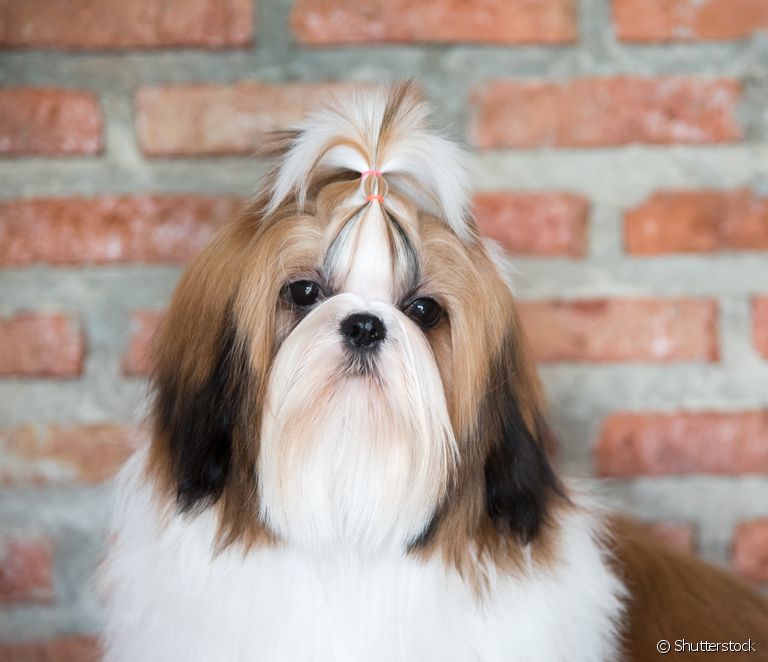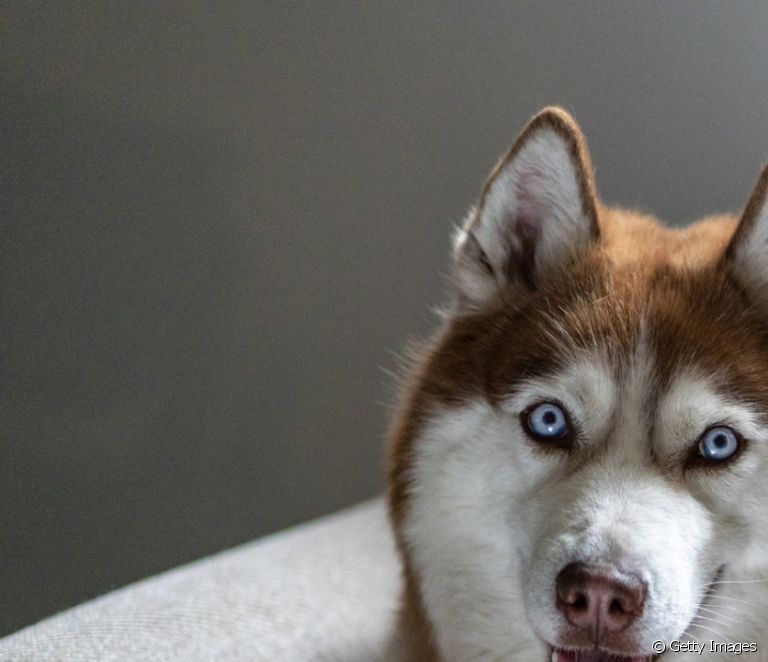10 most independent dog breeds

Table of contents
Some breeds - such as the Shih Tzu and Beagle - are known for their sense of independence. They are dogs that, as attached as they are to their humans, can manage very well on their own and don't mind taking the reins of the situation at times. These characteristics often make them great dogs for those who work and need to leave the animal unattended for hours, as they won'tfind it so much trouble to spend the day without company.
Independent dogs need to be walked, given attention, and exercised, but by choosing a more independent breed, you run less risk of having a bored puppy or one suffering from separation anxiety. Learn about the most independent dog breeds below!
1) Shih Tzu



The Shih Tzu breed is one of the most popular today! It's not for nothing: in addition to all the cuteness, the little dog has a super docile and calm personality. To top it off, the Shih Tzu is an independent, small dog that adapts very well to moments without company. He can manage well when he is alone and will hardly get bored and bark too much as with other breeds. Bythis, is a dog that can be away from the guardian for several hours without causing problems and is a great dog for apartments.
Even so, we remind you that the Shih Tzu dog breed is attached to its owner and likes affection. So even though it is independent, it is important not to disappoint your friend and, whenever you can, seize the opportunity to be with him! Stimulating low-intensity physical activities is another care that cannot be left aside.
See_also: Bloodhound: all about the dog breed2) Akita



Independence is one of the main personality traits of the Akita Inu. Despite this, the family needs to offer frequent and daily stimulation to avoid destructive behaviors of the breed. Environmental enrichment, with toys and other activities, is a great way to do this. Socialization is equally important: with Japanese descent, the Akita has a strong hunting instinct andprotection, so if it is not well socialized from puppyhood, it can be a bit skittish.
The Akita breed, while being very independent and liking to follow its own rules, is also very companionable and attached. It is a large dog that needs attention, but does not bark much, and despite its physical size, it adapts well to apartments. However, you should know how to spend the Akita dog's energy on a daily basis!
3) Siberian Husky



The Siberian Husky is one of the most independent dogs and is part of the team of large animals. But unlike the Akita, the Siberian Husky puppy, adult or elderly is super sociable and usually gets along well with other animals and children. He loves busy houses! But about the personality of the breed, the Siberian Husky is stubborn in proportion to being independent. Sometimes he prefers tofollow their own instinct, and because they are very active and energetic, they need a leader with a firm hand when training.
Even with this characteristic trait of the Husky dog breed, the little dog has everything to be a great companion in everyday life! They love the company of humans, are quiet most of the time and can even live in apartments, as long as they take walks and expend energy regularly.
4) Schnauzer



Known for the "moustache" on his muzzle, the Schnauzer is super affectionate, loves to play and likes attention, but he is also an independent dog and intelligent enough to be left alone for a few hours. For those who have a busy routine, he will be a great partner and will not give much work, but it is important that the moments of solitude are balanced with enough attention and affection so that the Schnauzer is not too busy.Schnauzer puppies do not feel abandoned. Despite all their independence, they are very attached to their owners!
The breed can come in different sizes: miniature, standard (medium) or giant Schnauzer. Miniature and standard Schnauzers are good apartment dogs, but they like outdoor spaces to run around. The giant Schnauzer needs a larger place to live, mainly because of its size and dynamic routine.
5) Beagle



Very active, lively and often even a little stubborn, the Beagle dog also has independence as a personality trait. He is a born explorer and rarely gets bored, as he is always looking for something to do and does not just "want" - he goes into action! But beware: the curiosity and energy common to hunting dogs - like the Beagle - can cause him to end up getting bored.delighting in what you shouldn't in the moments you are left alone at home.
The Beagle breed is not destructive, but it needs distractions in its free time. Since it is not a big fan of spending hours alone, interactive toys are a great help. In addition, training is necessary for the Beagle to learn what it can and cannot nibble. With these precautions, the medium-sized breed is good for apartments!
6) Lhasa Apso



For those who like small furry dogs, the Lhasa Apso is anyone's dream! But did you know that in addition to being a super cozy little dog, the Lhasa is also an independent dog? In everyday life, the breed is very quiet and, therefore, accepts to be alone for a few hours, without generating complications for anyone. But it is important to be aware: the Lhasa Apso dog hastendency to bark and may disturb neighbors, so training is important.
While the Lhasa Apso is a great apartment dog, the story is the same as with other breeds: it needs attention whenever possible. It loves the company of humans, but it's not a dog that likes to be held or touched all the time, but it will love to play with you.
7) Pinscher



The Pinscher is a small dog, but it comes with a reputation for being angry and stressed. What not everyone knows is that, behind the Pinscher breed's temper, there is a loving, protective dog full of energy to spend. In addition, it is an independent pet, and this independence ends up coming from its super self-confidence: in the head of the Pinscher 0 and other sizes, he really is,a Rottweiler, so he doesn't think twice before defending the ones he loves.
But don't be fooled: the Pinscher dog, even though he is hot in some cases, also likes the affection of the owner and is very attached. So don't deny your lap and playtime when he asks for it! In addition, the breed is great for small spaces - such as apartments - but can bark a lot.
8) Shar Pei



It's hard to talk about an independent dog without mentioning the Shar Pei. The breed is one of the best known for its strong independence and can stay away from the guardian for long periods. In addition, the Shar Pei dog is not very active and has that little lazy animal look that loves to spend most of the day lying down resting. So, even though it is large, it is a breed suitable for apartments,as they won't be too keen on roaming around the space and will prefer the comfort of a warm bed.
The Shar Pei dog breed is also attached to its owners and does not dispense a good cuddle, so it is good to dedicate some of your time to give it attention. But, in general, coexistence is quite peaceful, mainly because he is quiet and hardly barks.
9) Basset Hound



The Basset Hound is another owner-independent dog that can handle a few hours of the day without the family around. The breed doesn't bark much and has a very calm and quiet temperament, which makes the routine even more uncomplicated. Therefore, the Basset Hound ends up being a perfect wiener for those who are in the rush of work and other commitments, and live in apartments. In thehowever, are medium-sized dogs that have a certain disposition and need to exercise regularly.
It is important to walk the Basset Hound and provide other playful activities so that he can have fun and expend energy. With this, he has everything to be an incredible aumigo for any family!
10) Chow Chow



The Chow Chow is such an independent dog that sometimes he prefers to be alone than to be with his owners. That's not to say that they don't like affection and attention, but the breed is known for having a greater autonomy than other dogs. This allows the Chow Chow dog to be able to stay for a few hours with the absent family, because he will not suffer from separation anxiety or destroy the housein their spare time.
See_also: How does the smart dog toilet work?In reality, the Chow Chow dog breed is very easy to live with. Despite being a stubborn dog, these puppies do not bark much and have a low level of physical activity, so it is a medium-sized animal ideal for apartments.
How to have an independent dog? See tips to avoid pet dependence!
1) Set rules. To train an independent dog, it is important that the rules are defined from the beginning. He needs to know what is right or wrong, but he also cannot associate your presence with the idea of freedom. Imposing limits is necessary for the pet to create a greater sense of independence.
2) Offer environmental enrichment for dogs. The more enriched the environment your puppy lives in, the better the chances are that he will be able to bear spending some time away from you without getting bored. For this, toys and games make all the difference!
3) Put the tours into practice. As obvious as it may seem, walking your dog helps to burn off energy and make them happier. This means that if you know how to use it to your advantage, they'll start to cope better without you around.
4) Do not encourage dependent behavior. When you leave the house, for example, it is important not to make a scene of farewell. You should act naturally and show that there is nothing wrong with your departure - not least because you will soon be back. Do training sessions, if possible, to get the animal used to the idea of your absence.
- Close the story with tips to avoid dog addiction

